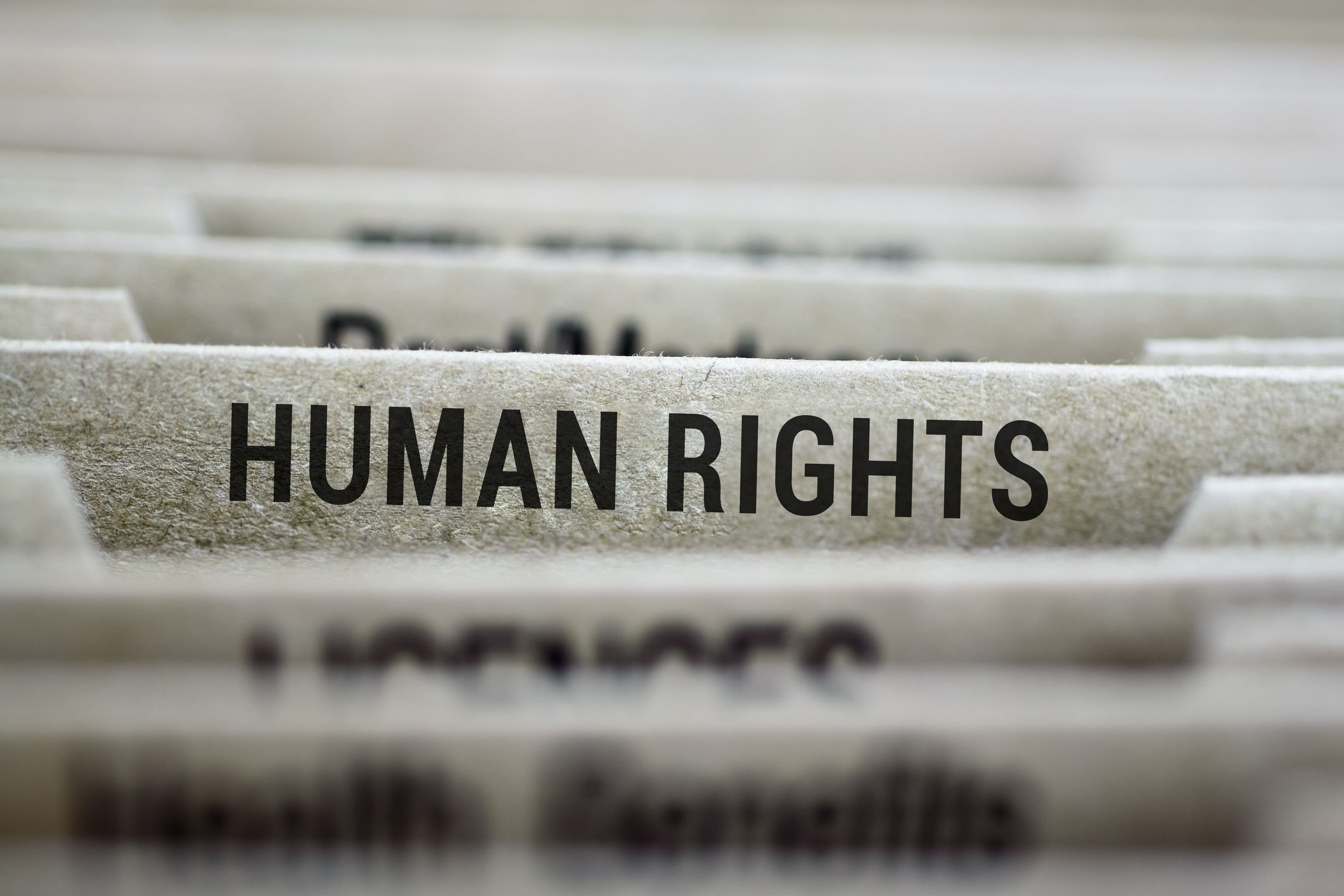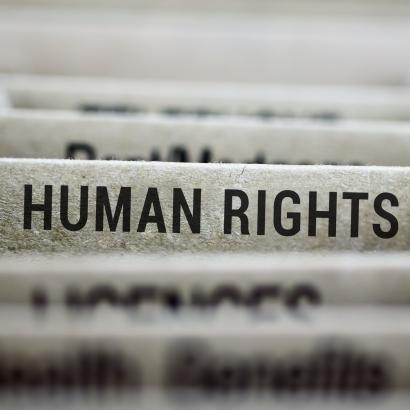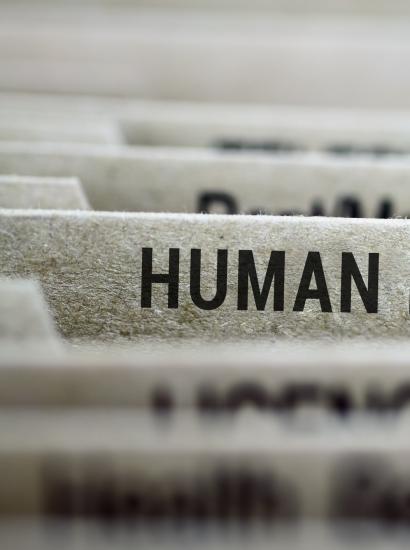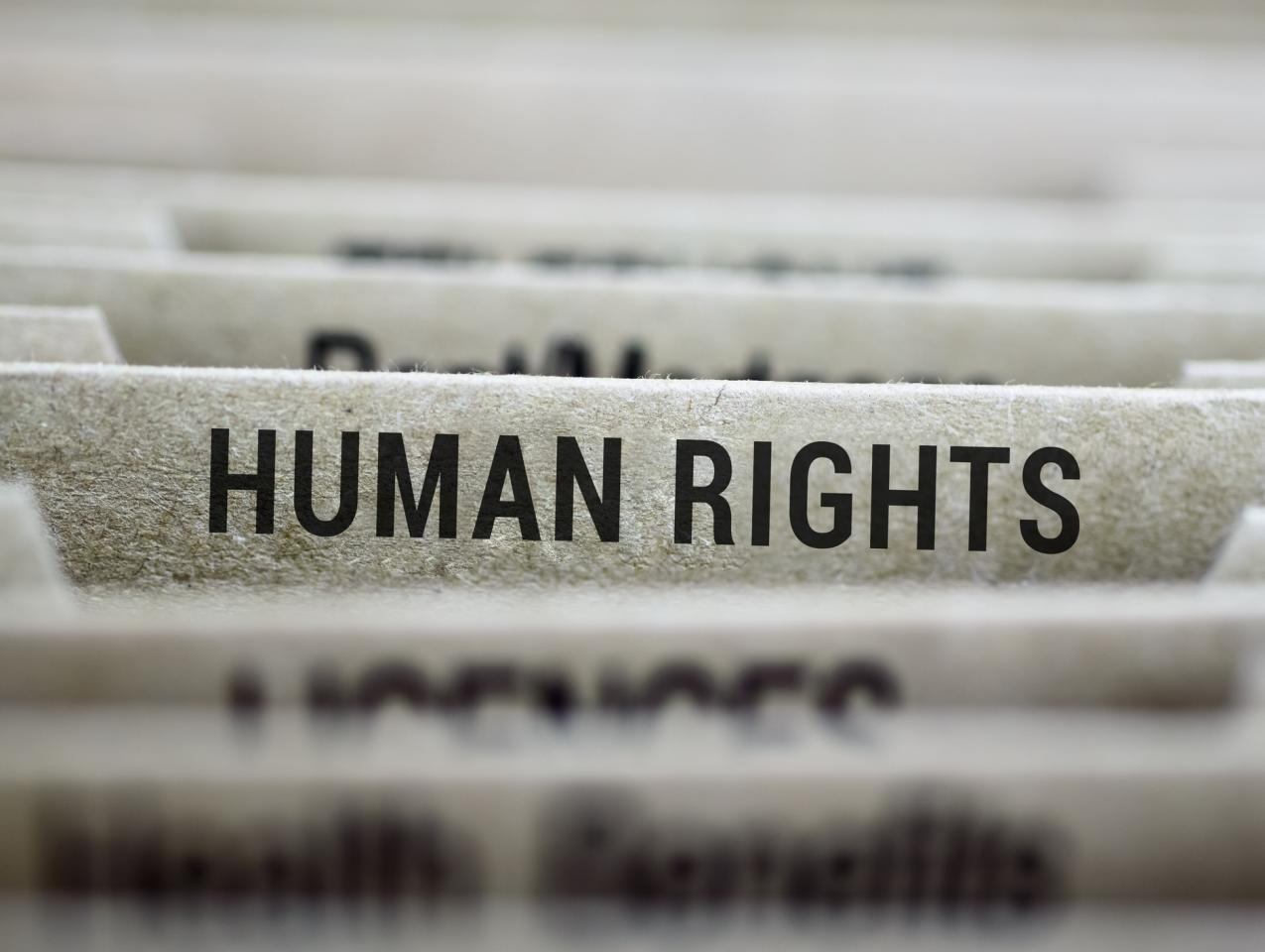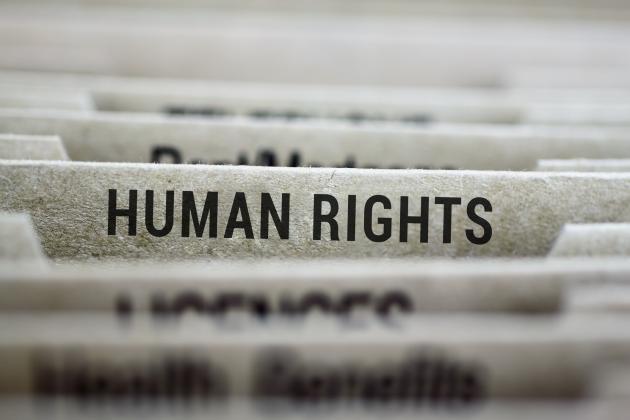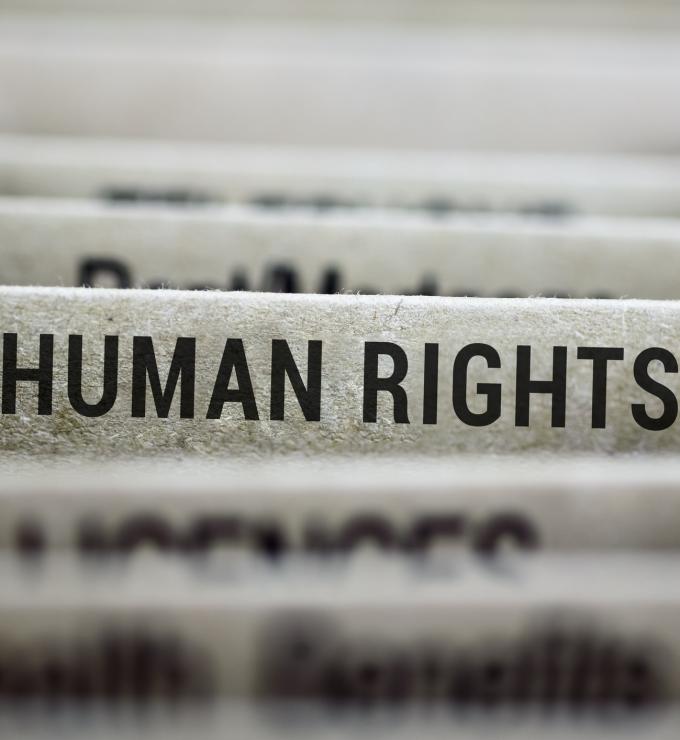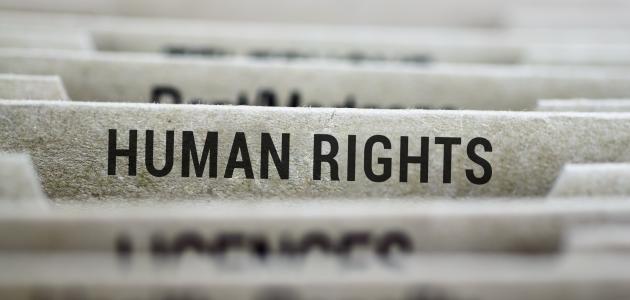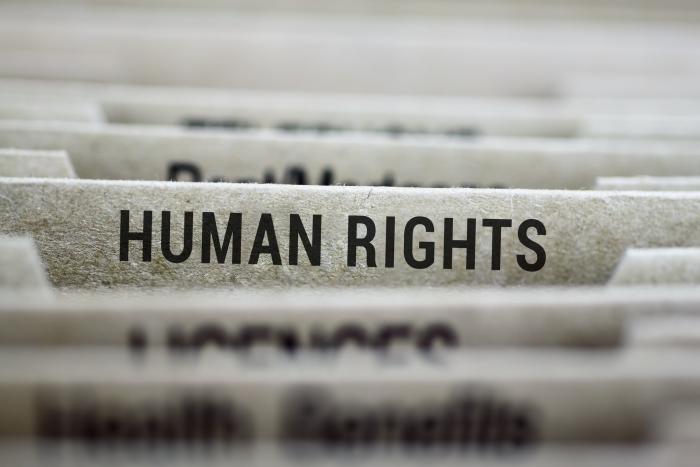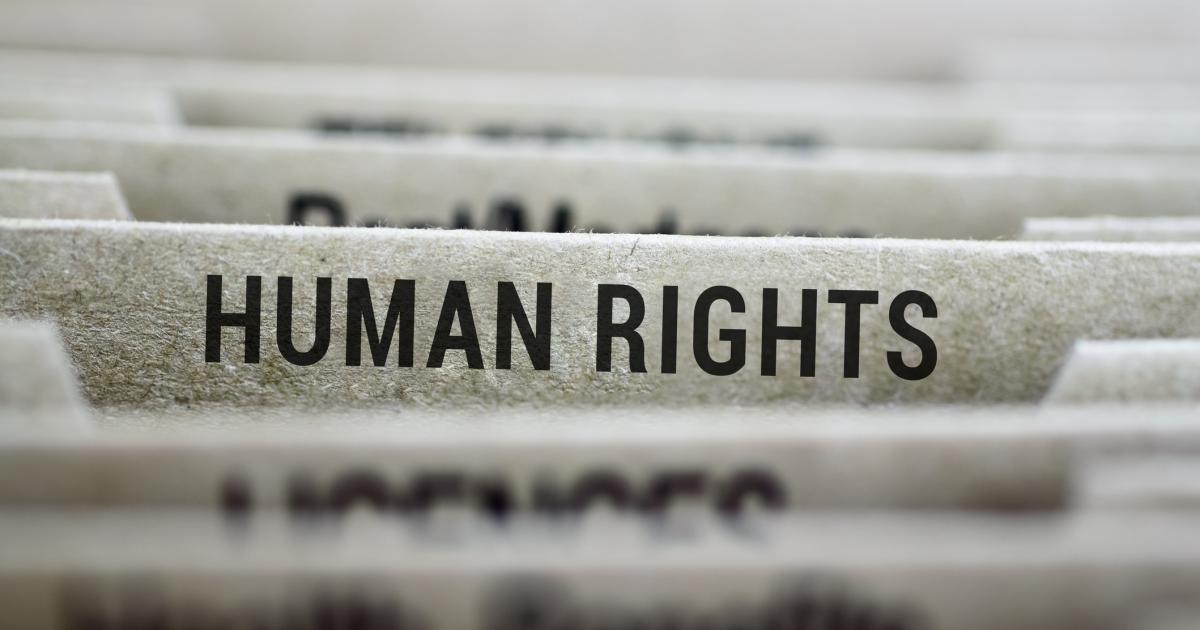- History
- World
- Law & Policy
- Civil Rights & Race
The idea of “Human Rights” is modern. Humanity’s history only recently has recognized the need for such a category, and a concomitant need to explain what the category covers and where it comes from.
Through most of the twentieth century, and now in the twenty-first to a considerable extent, there has been a structural dichotomy between those regimes, the largely autocratic kind, who declare human rights to be material in content: food, clothing, and shelter, and open societies which, while agreeing to material needs, have given most political weight to ideals of freedom and justice. All through the Cold War decades the centralized, one-party regimes of “The East” stressed material necessities while “The West” valorized political considerations. That dichotomy no longer prevails, but the concept and its practices as actually carried out have shown “human rights” as continuing to evolve ever more into “an American thing.”
The United States has become the heir, the manager, and the defender of human rights as a global imperative. The modern history of the idea and its implementation has followed a winding path, but its major milestones can be located over the past 400-500 years as marking the road to a project, or pillar, of world order in the most consequential sense. These might reveal, significantly yet sparingly, a trajectory of global-scale change increasingly moving toward an American defined contribution to universal betterment for all nations and people.
Among these achievements would be The Mayflower Compact of 1620; Roger Williams’ Rhode Island idea of liberty of conscience; New England’s perception of a “natural law” for man created in God’s image and therefore prior to and above the state; and Jonathan Edward’s 1741 sermon “Sinners in the Hands of an Angry God” which would be interpreted as the foundation stone for each individual’s decisions on the greatest issues of the human condition – a turning point later referred to as “the first American Revolution.”
When colonial New England congregational meeting houses began to evolve into town meeting halls, a new political consciousness began to take hold. By a process which today might be called “reverse engineering” it could be argued that if a) an individual person was God-created, then b) all persons in at least one important sense must be regarded as equal. Equality would require a political system of democracy which in return would be legitimized theologically. This inevitable circularity produced an awareness that in a world of irrefutable diversity the only irreducible basis for equality would be “the soul.” No two people could ever be considered “equal” except in the recognition that every soul had to be equal to all other souls. Here, as in other dimensions of political life, a theological concept can be located as the origin of a later political imperative.
This, in an “obvious” extrapolation, would be transformed into the doctrine of “the equality of the states” (as the former United Nations Secretary-General Boutros Boutros Ghali would repeatedly affirm, “a profound doctrine”). As with individuals, so also with states: an undeniable differentiation of each “to all” of the collective would be, in judicial terms, overridden by the need to make everyone, in some sense, equal.
Much of the modern history of the international diplomatic system can be explained as a self organizing effort to gain acceptance of a fundamental duality: that each state is a basic and individual unit of world affairs, yet that taken together, all states in the international system are conceived in some sense as universal. Thus we accept “the universality of human rights.” The simplicity of this recognition is founded upon a complex intellectual and political accommodation. The achievement of this process across the past two or more centuries should be regarded with admiration by all decision-makers of world order. To put it more directly, the essence of human rights is to be found in the universality of that concept and its actualization, and “universality” itself is a quality that must be studied, understood, and strengthened. The international state system and the world order which is its product is comprised of a complex of structures and ideas which must be understood and administered as a coherent totality.
Human rights have been recognized at least semi-formally and partially in established international system agreements. The 1973 Council on Security and Cooperation in Europe – CSCE – in Geneva, led to the Helsinki Accords of 1975, a bitter political struggle that was complicated and fraught by linking the acceptance of concepts of freedom of thought, of conscience, and of religion to a parallel diplomatic recognition of Soviet influence in accordance with what Moscow regarded as the national borders of Eastern European countries, all of which were in the USSR’s “sphere of influence.” In the same context, and under the United Nations Charter charge to the UN Organization to promote and encourage respect “for human rights and for fundamental freedom for all,” the UN’s Human Rights Council’s neglect and mismanagement of these responsibilities led the United States to withdraw from the Council in 2018 citing its failure to produce reforms and to oppose human rights abusers from discriminating against Israel. As the American Ambassador to the Council, Kelly Craft, stated, the body had become “a haven for despots and dictators, hostile to Israel, and ineffectual on the human rights crises.”
The definition of “human rights” in our time has somehow been “understood” or assumed, yet never quite clearly spelled out. The example, or “case” of Hannah Arendt is more than relevant to the need for clarification and simplicity, as her thoughts, decisions, and commitments go to the heart of the matter. Arendt left Germany and Europe for the United States to escape the impending Nazi movement toward further genocidal actions. Two critical concepts are exemplified by her career as a political philosopher and intellectual model: her condition as “stateless” and her perception of “the banality of evil.”
Through the experience of her own years as a “stateless” person, Hannah Arendt understood the necessity for a “state” entity that would declare and defend the equality of all its persons. The logic that would follow would then require an open political system. i.e. democracy that would give each person an equal voting right. And in turn, this would create an imperative for a free, responsible, and open legal system – “the rule of law” – for law enforcement and judicial administration.
There then appears, almost as a matter of course, a “ladder” of politically-recognized and/or politically active categories: from the soul to the person to the state to a national or ethnic culture giving political power beyond the state to a larger entity, e.g. the Uyghur Autonomous Region, to an even larger yet coherent collective such as Tibet or Mongolia.
This achievement must be assessed anew as individual states may be observed as gathering – for various reasons – into “spheres of influence.” There is a China sphere, a Russian sphere, an Indian sphere, and Iran sphere and in various forms a Japan, Saudi, and other such spheres. This emergence of a “Sphere of Influence” era is, as they say in Silicon Valley, very non-trivial, as two differing “developments” are coming into effect and must be neutralized or managed.
The first development will be that while there is a “doctrine” of “the equality of states,” there is no doctrine to recognize an equality of spheres. A second, related, development would be that the international state system’s concept of universality will not automatically attach itself to an “Age of Spheres of Influence” – yet these two attributes – equality and universality – will be indispensable to the successful working of world order as we know it now.
With such diversity, can there be anything approaching “universal” rights? Yes, if the international significance given to CSCE and the Helsinki Accords are recognized for the forward-looking measures originally attached to them. The specific language will be contested, but it can be legitimate to claim legitimacy for a short line-up of universal rights on the foundation stones of freedom of speech, of assembly, of religion, of conscience, and of political action within a nation-state system of “the rule of law” understood to be available to “the people” under reasonable conditions and requirements. This amounts to the first ever achievement of a true “world order” of “universal’ reach.
Thus we arrive at a turning point in contemporary history. From President Xi Jinping’s “thought” and other PRC documents, it is clear that China’s leaders are convinced of the superiority of their one-party regime and of the West’s and America’s decline and inevitable loss of world leadership. The PRC in nearly every dimension is prepared or preparing to supplant the U.S. in the pre-eminent role. This, in PRC terms, is a certainty and already well under way.
The U.S. State Department (S/P) has officially described the world situation:
“Awareness has been growing in the U.S. – and in nations around the world – that the Chinese Communist Party has triggered a new era of great-power competition…American statecraft depends on grasping the mounting challenge that the PRC poses to free and sovereign nation-states and to the free, open, and rules-based international order that is essential to their security, stability, and prosperity.”
Official PRC documents have described the present situation in one-hundred year terms, beginning with the formation of the Chinese Communist Party in the May Fourth Movement (1917-21). This, in PRC terminology, as an “objective” reality that is now coming to fruition and will end the era of “White” Western dominance of the international state system.
The key to this global transformation will turn on “universal” human rights. These, as noted above, are “an American thing” and from Beijing’s point of view, alien and unsuited for present and future times. Xin Jinping’s “Socialism with Chinese Characteristics”; i.e. a world led by autocratic, undemocratic regimes, is the wave of the future, a wave that is on the edge of breaking on the shores of the West.
How this contest will be decided already has begun in the matter of human rights – i.e. are they “western” or truly “universal” in some fundamental way.







